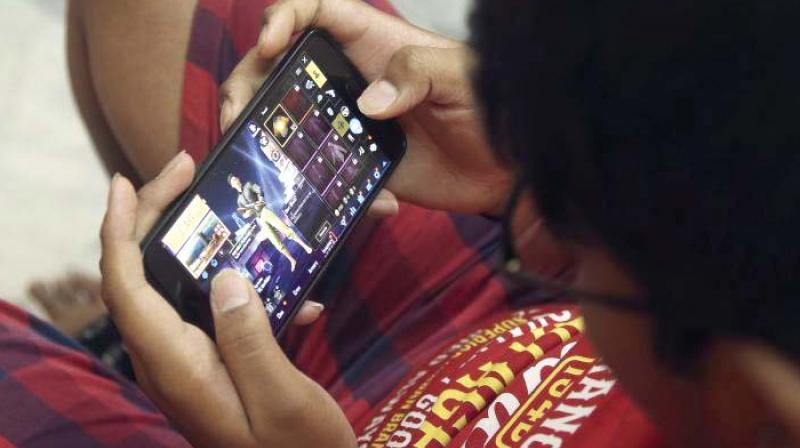Gaming turns ‘fatal’ as addicts go high in virtual world

Bengaluru: The recent killing of a retired police official Shekarappa in Belagavi by his son Raghuveer, 21, caused by the PUBG gamer and the suicide of Shreyas, a ninth class game addict in Nizamabad of Telangana has sent shock waves in the gaming industry and among the gaming enthusiasts.
Fatalities of this kind have been reported earlier too with the infamous Blue Whale Challenge that assigned tasks leading to some gruesome and grotesque teen and youth suicides and the horrific Columbine High School Massacre of 1999 in Colarado, U.S, where 12th grade students, first person shooter games Doom I and Doom II addicts, Eric Harris and Dylan Klebold randomly opened fire in the campus and attempted bombing killing 12 students and a teacher.
These instances point towards dealing with the matter with an open mind and also allaying the myths or taboos associated with phone gamers. When Deccan
Chronicle interacted with some gamers and experts in psychology, it received varying opinions.
Some find PUBG as a platform to connect and interact with best buddies separated by great distances while playing the game together just as they would do in a playground. While another says lone players are more susceptible to turning anti-social owing to their minds attaching to the virtual world and provoking dangerous reactions in the real world.
However, it has often been observed that children growing up with mobile or smart phones tend to stay disconnected from the real world and real people and in the game of "likes for likes on social media" tend to grow narcissistic, and get easily perturbed or provoked by real world situations.
"The recent heart breaking news of a PUBG addicted youth beheading his father in Belagavi and a teenager committing suicide on being admonished by his
parents for spending too much time in playing PUBG in Telangana need serious attention. We need to look into our behaviours and see where we are heading as a society. It is an alarm to the society which needs to address this problematic issue especially among children and adolescence", said Gracy S. Jebastina,
psychologist and head of Unleashed Schools Pvt. Ltd.
"Children and adolescents get hooked to these virtual games as they are very attractive, give them an adrenal rush and motivate them to spend more and more
time on them. The impact of being addictive to this game is alarming both physically and psychologically. Exploration through other senses is curtailed, face to face connections are threatening and therefore they are withdrawn from the others,” Gracy added.
There are a lot of gamers and it is like any other means of recreation and for some, video games are a way of sharpening their senses as well.
Crime purely depends on a person's mental disposition, says Sharat Nanjappa, a Masters in Clinical Psychology and an Art Therapist interning at Inspiron.
"The accused individual who violently attacked his father couldn't have done this for a game. If the game can do that, that's hypnosis, you might as well call it
black magic. The individual, I believe, could have serious unresolved issues leading to an aggressive personality. I genuinely hope that a psychologist gets to
study the individual so we can better understand the thought pattern or reason behind such dangerous impulsive behaviour," opines Sharat.
What is PUBG?
"PUBG is a survival game where you play with 100 people in a given map. Inside a map, there is a circle which gets smaller with time. The smaller it gets a
player or a team of players need to kill or shoot down more people to survive. A shrinking circle against time that is running out trigger the killings for survival",
explains Anoop P Bhaskar, photographer and travel consultant.
Though Anoop says the game never pushed him into anti-social behaviour, he cautions that dedicating moments of solitude to gadgets can affect one's
interactions with real people and even disconnect youth from their kith and kin.
"I have seen many such social media addicts turn narcissistic. Their personal life surrounds around the 'likes' and 'like backs' on their social media handles,
which often work as only mutual favours. They tend to behave like drug addicts high on virtual world", says Anoop.

